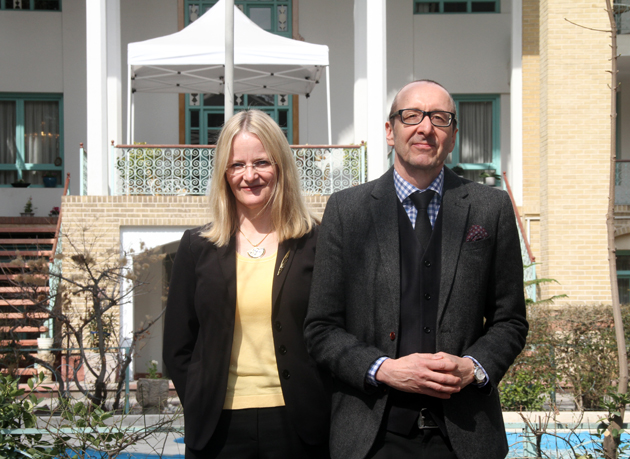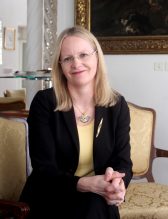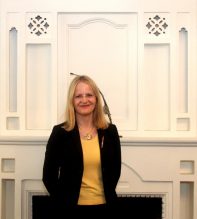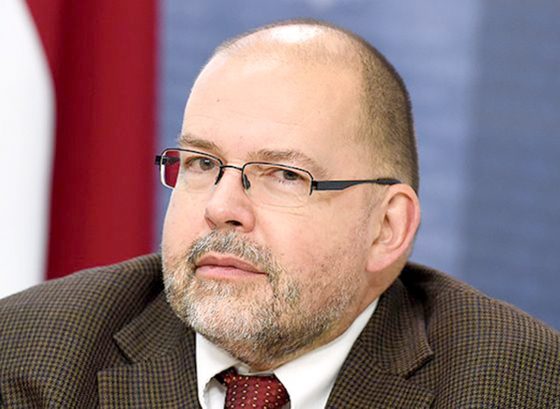“I Enjoy Meeting Iranian Women Who Believe in Themselves,” States Spouse of Austrian Ambassador to Iran.

Angelika Scholz was eager to learn as a kid and teenager and maintained her spirits up to the university levels. She believes the most beautiful moments of her childhood were marked when she spent time in the refreshing nature of Austria and still feels blessed when remembering those amazing days. She graduated in history and international relations, and after a while with the Austrian Daily DIE PRESSE became the press officer of the Austrian Universities Association, where she continues in the direction of the objectives the association has set to promote the role and goals of academies and universities in the economy and society. In an interview with her, she emphasized that nothing in this world matters more than her husband and with a prospective point of view, she tries to be a fine companion for him.
AVA Diplomatic’s Exclusive Interview with
Mrs. Angelika Scholz, Spouse of the Austrian Ambassador to Iran
Interview by Mohammadreza Nazari
First and foremost, please explain to our readers where you were born and how and where you spent your teenage and youth years?
My parents have four children and 12 grandchildren. I am their oldest daughter and the mother of five of their grandchildren. I feel very close to my brother and my two sisters and their families and I love my nephews and nieces like my own children.
As a child I adored playing with dolls and spent endless time with them. I still know their names – they all started with the letter „S“and I remember all their outfits, their beds and accessories in detail. Of course I could not have known back then that my future husband would have a family name and a first name with this very letter.
Ever since I can remember reading was very important to me. I could not wait to start school and was very eager to learn. Months before I started primary school I already had a school bag with pencils and other supplies and dressed every morning and hoped somebody would finally take me to my first class. I could not wait. When I started I was a very good student and continued to be. I finished with honors.
The most beautiful moments and of my childhood I spent in nature. I have wonderful memories of daytrips to forests and mountains with my family. Especially nice were our outings when we gathered mushrooms or wild berries. I cannot tell you how happy I felt to see wild strawberries, blueberries or raspberries in abundance. The scent is unforgettable as are the memories of what delicious pastries the grandmothers and aunts and my mother made of it. The Austrian winter season with sledging, skiing and skating and horseback riding in the snow left impressions of a childhood like a dream.
I am very glad my husband and I have found a country home where we can enjoy time in Austria’s forests. Today I am not very successful in finding mushrooms but I enjoy looking for them. All the wild flowers I see on our hikes instill me with a great sense of joy, especially if I encounter saffron in bloom, which is very rare in Austria.
 What field did you study in college?
What field did you study in college?
I studied history and international relations at the university of Vienna.
Why did you not start a career in international relations despite having studied it in college?
I studied political science and history as well. I never had the wish to work for foreign service.
Did you not like to work in political positions?
No.
Alexander Van der Bellen, the Austrian President-elect has asked for pushing back Islamophobia as well as accenting women’s right to wear hijab. What do you think about this case?
I believe in the universality, indivisability and impartiality of human rights and I accept the norms of my guest country and certainly respect the positions and opinions of President Van der Bellen whom my husband has the privilege to represent in Iran. President Van der Bellen has signed into law restrictions banning the wearing of the burqa and other items concealing the face in public places and buildings. The measures, similar to those in other European Union countries, also apply to visitors.
What motivations did you have to major in that field?
The combination of learning from the past and using it as a basis for future policy development.
How different was opting to pursue higher education in your youth days from now?
Probably easier because there were no limitations to study at universities after finishing high school. Today there are entrance exams for many academic studies. Thousands try for medical studies but only few hundreds pass the entrance test for example.
Did you work anywhere else before joining UNIKO?
Before I joined the Austrian Universities Conference in 1993 I worked for the Austrian Daily Newspaper „Die Presse“
In what fields do you cooperate with UNIKO?
Until 2004 my position was spokesperson. My last position before coming to Iran was policy advisor for Universities’ budget affairs. I also developed and edited an online platform for research and science and university related policies. I wrote short abstracts on international, European and Austrian reports for ease of reference.
When was UNIKO established? What is its objective?
Uniko handles the internal coordination of the universities and represents them in national and international organizations. Uniko is the public voice of Austrian universities and provides administrative and organizational support to the National University Federation.
An Austrian Rectors’ Conference was first founded in 1910, re-established after World War I. It did not meet during the period of 1935-45 and functioned again only in 1955.
Is UNIKO funded by the membership fees taken from Austrian universities?
The 21 public universities contribute to UNIKO’s budget according to their size.
How powerful is UNIKO when it comes to forming and affecting the current and future higher education of Austria?
Along with its members, uniko develops positions which shape and influence the current and future agenda for higher education. It’s purpose is to collectively strengthen the universities’ role and purpose in the economy and society. Uniko fosters the advancement of Science and Art.
The scientific collaborations between Iran and Austria go back to 160 years ago. Back then, Austrian professors would come to Dar ul-Funun, which was established by the then PM of Iran, Amir Kabir. How do you assess the academic cooperation between the two countries?
More than 1.600 Iranian students were admitted to Austrian universities in 2016. The Iranian community in Austria consists of about 30.000 persons and you find them in key professions such as lawyers, physicians, technicians actively contributing to the success of Austrian society. The Austrian community in Iran stands at 380 persons. There is an ongoing scientific dialogue between Austria and Iran to further cooperation.
Considering your active participation in the Iranian society, do you see any commonalities between Iranian and Austrian families?
I do not see any difference. All mothers and fathers anywhere in the world want the same for their children. We are all the same.
Why do families appear to be stronger social units in Austria than in other European countries?
In Austria the rate of single adult households without children is 37%, the EU average is 33,1%.
Why do Austrian families prefer to stick together despite the fact that their members are comparably fewer?
The disposable income of people in their 20’s has shrunk in recent years and they live with their parents longer.
Austrian families are said to traditionally visit grandparents on Sundays and have a meal with them. How alive have these traditions remained in the Austrian urban society?
It is very much alive today. My daughters take turns to see their grandfather and cook for him. When our own grandparents were still with us we were visiting them on a regular basis.
Austrian women are famous for their beautiful, clean houses. How much time do you spend at your residence doing so?
The Residence is not my private house but I like to decorate it and prepare for events. Our private homes in Austria both my husband and I take care of and clean and maintain constantly. We both love to entertain guests in our private homes in Vienna and in the countryside.
How many children do you have? What majors have they studied?
I have five daughters. Rosalie is 27 and works as a lawyer in Paris. Adelheid is 22 and in her last year of medical studies at the Medical University in Vienna. Florentine is 20 and in her third year of Technical University in Vienna, her field is technical engineering. Pauline is also 20 and works and trains in tourism in a five star hotel in Salzburg. Elisabeth is 18 and in her last year of school in Vienna.
What specific rites and rituals are there in Austria for when a child is born?
None.
How tangibly has your husband’s diplomatic career affected the way your children were raised?
We raised our children to be independent, hard working and polite. We would have done the same with any other career.
Every country owns its own set of customs and traditions when it comes to wedding. What can pique the interest of our readers is to know what wedding rituals and traditions exist in Austria.
We Austrians are very individual in our ideas and expectations regarding weddings. Some Austrians like to get married in our traditional outfits and some brides like to use a horse carriage for their transport to the ceremony or to church. As a matter of honor members of sports teams great the newly married couple in their team uniforms. “Stealing the bride” is one tradition – some family members “kidnap” the bride and the groom has to send his best man to “free” her and pay some money to get her back. Most of the time the bride is taken to a small restaurant or coffee shop close to the wedding ceremony hall. In a well planned wedding the best man should receive some hints where to find the bride and the bride should play along and the groom should pretend to be very worried because the guests will love a good show.
Do you have any particular condition for anyone who steps forward to propose to your daughters?
They are successful women who can support themselves and make their own decisions in live. I love all my children without conditions. It is not customary to ask permission of parents to get married in Austria.
A while ago, we had the Austrian Food Festival in Tehran. Which Iranian meals are closer to the taste of Austrian people?
 All Iranian food is fantastic and I think the only thing very different to Austrian taste would be Iranian bread. In Austria most people prefer dark whole wheat bread. Our Austrian chefs remarked that Iranian herbs are incredible and show highest aromatic quality.
All Iranian food is fantastic and I think the only thing very different to Austrian taste would be Iranian bread. In Austria most people prefer dark whole wheat bread. Our Austrian chefs remarked that Iranian herbs are incredible and show highest aromatic quality.
Which Iranian dish do you like the most?
Asch, nan, ghorme sabsi, shirin polo
What do you do in your spare time in Tehran?
I enjoy the hiking trails of the beautiful mountain ranges in the North of Tehran.
How contributive has your membership in the Diplomatic Ladies and Spouses Group (DLSG) been to your presence in Iran?
I met wonderful ladies and enjoy their support and friendship. DLSG gets you connected and does a great job.
What countries have you been to along with your husband on his missions?
Washington DC, Geneva, Beijing, Abuja
Some social activists are on the belief that whenever there is not any gender equality in a society, there must be some capacity allocated to them in elections, such as parliamentary elections. Do you believe in women’s allocated capacities in politics?
I believe in capacity and not in quotas.
How do you evaluate the current status of Iranian women?
They do fabulously at all University levels, we see them as equals in all kind of professions, they are great drivers in Tehran’s busy streets, they are the most creative homemakers and excellent cooks. Their hospitality and kindness are the most wonderful experience in Iran and they are just like the women in every country of the world the backbone of society. I enjoy interacting with the self-confident women of Iran. They are hard-working and smart and with great self-esteem and represent one strong half of Iran. I am confident, that the other half is committed to doing its utmost to support women to achieve the full realization of their potential and to make it available to the benefit of the whole society.




